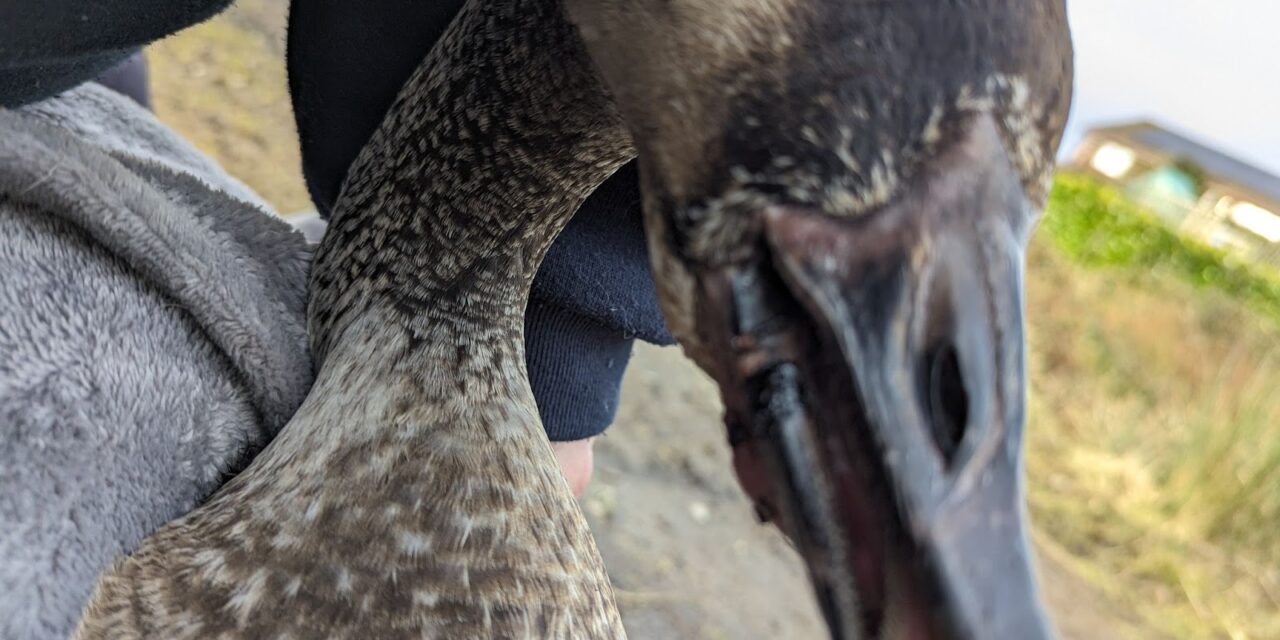Thankfully the can was removed by an RSPCA animal rescuer
A reminder of the dangers of litter has been issued by RSPCA Cymru after a goose was found with a can stuck on its mouth in Aberdare.
When attending, RSPCA Animal Rescue Officer Paula Milton said despite searching the area with a member of the public the goose was not seen.
“I was disheartened but I said I would be back after my next job,” she said. “I couldn’t stop thinking about this poor goose so after my next call out I cancelled my lunch so I could return, as I would be running out of time to track down this bird.
“Back at the location after a short while of only seeing many other geese, I saw something move right in front of me at the edge of the water. It was the injured goose – he was so well camouflaged!”
Using her net she managed to catch him successfully so she could release him from the can.
“I took him away from the water and put a blanket over him to keep him calm,” she said. “I then got to work by carefully cutting the can off his mouth. Luckily it was aluminium so was easy to cut off.
“I checked him over and thankfully the can had only been on him for a maximum of 48 hours so hadn’t done too much damage and I was able to let him go straight away. He swam off and started to drink straight away.
“I am so pleased I was able to find him as he was so well camouflaged. The member of the public who I met there is going to keep an eye on him and I also rang the caller who was over the moon that we had got him and will keep an eye on him too.”
Thankfully, there was a happy ending in this case, however, the RSPCA say the incident is another reminder as to the dangers everyday objects can pose to animals – and the importance of ensuring waste and litter is always disposed of correctly.
“This incident reminds us that everyday objects can cause distress and difficulties for animals,” said Paula.
“Litter can impact all animals – and the RSPCA continues to remind the public to bin, recycle or reuse waste materials so we can avoid incidents like this happening.
“Shockingly, we receive around 5,000 calls a year regarding litter and unfortunately, our wildlife are the main victims when it comes to people’s rubbish.”
For more information about how litter can impact animals, please visit https://www.rspca.org.uk/adviceandwelfare/litter
As the RSPCA enters its landmark 200th anniversary year – the charity wants to inspire a one million strong movement for animals, as the charity aims to “create a better world for every animal”.
To find out how you can join our million-strong movement for animals visit www.rspca.org.uk/200We’re asking animal lovers to join the winter rescueby donating to help rescue teams reach the thousands of animals who desperately need them.



